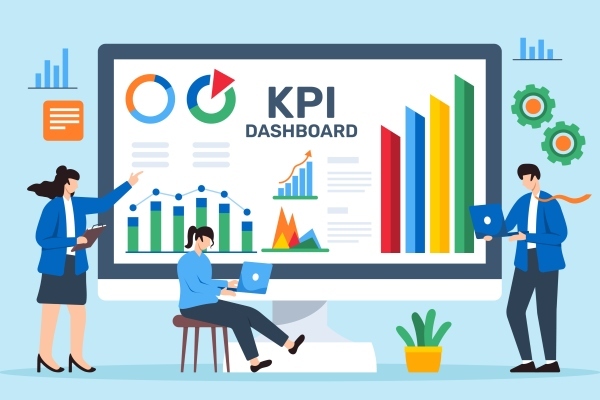
What are the 4 Types of SEO?
There are four main types of SEO: on page, off page, technical, and local. In this blog post, we will discuss each one in detail so that you can understand what they are and how they can help your business. We’ll also provide some tips on how to improve your Search Engine Optimisation strategy for each type!
The 4 Types of SEO
Types of SEO basically translates to SEO techniques and it’s important to apply at least three of the four types of SEO to your digital marketing efforts.
On page SEO has to do with all the content and tags on your website. This is what tells search engines what your website is about. As well as how your website is linked together. The aim being, that when someone types in their search queries your website will appear because it best matches the searchers intent.
Off page SEO has to do with gaining links from other websites back to yours, as well as social signals like likes and shares. This helps search engines see that your website is popular and relevant. This is where white hat SEO is so important as trying to trick the search engines with black hat SEO techniques won’t get you long term results, so please don’t be tempted into the black hat SEO world.
Technical SEO has to do with making sure your website is easy for search engines to crawl and index. This includes things like site speed and structure as well as making sure that it works across desktop and mobile devices as well as different web browsers.
Local SEO has to do with making sure your website appears in local search results. This includes things like having your NAP (name, address, phone number) listed correctly on your website. Your GMB listing and local content etc.
So now we know a little bit about what each SEO technique involves, let’s take a closer look into the detail of each one. As mentioned earlier, you should be doing at least 3 of the 4 different types of SEO. The exception being local SEO, if you are NOT a local business then you need to put more effort into the other three SEO techniques. It is still a good idea to have your Google My Business listing as this will help overall SEO efforts regardless.
On Page SEO
What is On Page SEO?
On Page SEO is the practice of optimizing a website’s content and structure for the purpose of earning higher positioning in the search rankings. The main focus of on page SEO is to improve a site’s relevance and authority in order to rank as highly as possible for relevant queries.
This means employing white hat SEO techniques to show that you are the leading authority on a particular topic.
There are a number of factors that contribute to on page SEO, including page titles, title tags, meta descriptions, keyword density, alt text and URL structure. In order to effectively optimize a website for search engines, it is important to understand how these factors work.
Manipulating these elements with the sole purpose of gaining search engine traffic could be seen as grey hat SEO or even black hat SEO. So it’s important to maintain a balance between what the search engine bots want to see and what your target market wants from your web pages.
Start by doing your keyword research to find out what your target audience are looking for, then you can plan out your content based on what they are actually interested in. This is not just about search engine optimisation but helping your target audience to decide if you might be a company that they want to do business with.
Page Titles
This is the title that appears at the top of each page, you should always aim to write one page per topic, never try to rank a page for multiple keywords. Your page title should be descriptive, but not too long and if natural it should be keyword rich.
Meta Title Tags
A title tag is the text that appears in the search engine results pages (SERPs) when a particular query is entered. As per the page title, the meta title tag should be descriptive and keyword rich. Whilst not a direct ranking factor, this is the first thing your target audience will see of your business and it needs to be engaging so that they will click on your website instead of your competitors.
Meta Descriptions
Meta descriptions are another important element of on page SEO. Again, not a direct ranking factor but it plays a very important part in the journey of your potential customers. Meta descriptions are brief snippets of text that appear below the title tag in SERPs. Meta descriptions should be clear, concise, and keyword rich in order to earn high click-through rates from SERPs.
Keyword Density
This is the number of times a particular keyword or phrase appears on a web page. Keyword density should be kept at a moderate level in order to avoid being penalized by search engines for keyword stuffing. You are looking at a couple of percent. I personally don’t really measure keyword density, I believe that if you are writing content aimed at the end user and including your keyphrases where natural then you shouldn’t need to worry too much about google bots penalising you.
URL Structure
URL structure is the way in which a website’s pages are organised and how they link to one another. A well-structured URL hierarchy can help search engines understand the relationship between different pages on a website and can improve a site’s crawling and indexing. You most linked to pages, should be your most important pages on your website – your money pages, or service or product pages.
Images and Alt Text
Images play an important role in a web page and whilst search engines cannot read images, they can read the alt text that you place behind images. This is important from an accessibility point of view too and by making your alt text descriptive it can help both users and search engine crawlers understand what an image is.
It’s also a good idea to change the file name of any images before uploading them to your website, again so that they are a more descriptive representation of what each image actually is.
Again, this isn’t about dodgy grey hat SEO or black hat SEO techniques, I’m not encouraging you to keyword stuff alt text with phrases that bear no relation to the image itself.
This is especially important for ecommerce SEO. In ecommerce SEO you will find people are more likely to search images as well as the standard SERPs and so this will help to put your products in front of the right people which they are searching. An ecommerce website has a fantastic opportunity to rank for incredibly specific phrases.
Content
Content is probably the most important part of On Page SEO, writing quality content aimed at your ideal audience is imperative. This content should contain your relevant keyphrases without being stuffed (see keyword density above) and should follow a natural linking pattern to show Google which pages are the most important on your website.
Google Analytics and Google Search Console will give you a lot of information about the content on your website and how visitors are interacting with specific pages as well as the keyphrases that you are being ranked for in the first place. This can help you to work on your content to make sure you are giving your audience the very best information and experience on your website.
A content strategy is one that provides your audience with quality relevant content on a regular basis, a digital marketing company can help you to produce a strategy that involves content to improve your SEO ranking positions. This is where keyword research is critical because Google’s search results will feature that content SEO wise that incorporates a number of SEO factors aside from the words and images on a page, this includes things like meta tags, page speed, internal links and many more of the seo techniques already discussed in this article.
Improving your website’s On Page SEO can be a complex and time-consuming task, but it is well worth the effort. By understanding how On Page SEO works as one of the four SEO techniques and by following best practices, you can improve your website’s ranking in SERPs and earn more organic traffic.
On site SEO is important, but it’s just one part of a comprehensive SEO strategy. In order to rank highly in SERPs, you also need to focus on off page SEO factors such as link building and social media engagement too. As well as technical SEO.
Off Page SEO
What is Off Page SEO?
Off Page SEO (search engine optimisation) is the practice of optimizing a website to rank higher. Off page SEO refers to the techniques used outside of your website to improve your ranking, such as link building, social media marketing, and search engine submission.
Link building is the process of earning backlinks from high-quality websites. Backlinks are links that point from one website to another and they help improve a site’s ranking in search engine results.
Of all the different types of SEO, this is probably the most difficult one to conquer. Masked with the reputation of black hat techniques, block networks and spammy directories link building itself can be a big challenge.
As well of the challenges of building the right type of links, you could also find yourself the victim of negative SEO. Negative SEO is where another business (usually a competitor) will pay someone adept at black hat techniques to build loads of spammy links to your website, post fake reviews and PR. They use negative SEO techniques to try and damage not only your SEO efforts, but also the reputation of your business.
Think of it in terms of earning links rather than building them. If your content is good then other website’s will naturally link to you. This can be difficult for any business initially, so here are some ways you can get started with link building:
- You can offer to guest blog on other websites
- Post your articles to sites such as medium and reddit which are user generated.
- Add your website to local directories
- Add your webiste to industry specific websites
- Ask your customers or suppliers if they will link ot you through case studies or blog posts
- Make sure you have your Google and Bing business listings set up
- Set up all of your social media profiles even if you don’t use them on a regular basis.
- Use a PR company to get exposure across newspaper and magazine websites, you could try doing this yourself.
- Sponsor a sports team and as part of the package ask them to reference you and link to your webiste.
- If you are exhibiting at a show or exhibition, or speaking at an event make sure that a website link is included.
- Join networking groups, most will have a directory of members giving the opportunity to gain another link to your website.
These are all white hat SEO techniques that could help your website perform better in the search engines. Pick just a couple to start with and build it up from there.
Social media marketing is the process of promoting your website or brand on social media platforms, such as Facebook, Twitter, Instagram, TikTok and LinkedIn. Whilst not a stand alone SEO service (after all the major search engines won’t crawl the links within these platforms) it should form part of your digital marketing activity.
It can drive organic traffic back to your website, its a different type of SEO but becoming more important and so if you aren’t present across social media platforms then you really need to think about doing this.
Search engine submission is the process of submitting your website to directories and search engines so that they can index your site. The more often you change your website, but adding new pages or amending existing ones, the more likely your website will be indexed on a regular basis. Sites such as the BBC website will have search engine bots crawling them pretty much constantly.
Off page SEO is in fact a critical part of any digital marketing strategy because it helps you earn backlinks, build relationships, and increase your visibility online. If you’re not doing off page SEO, you’re missing out on valuable opportunities to improve your website’s ranking.
Technical SEO
What is technical SEO?
Technical SEO is the practice of optimizing a website for Google search with the goal of earning higher web traffic levels and improving the visibility and organic search results of the site. It focuses on the behind-the-scenes aspects of website management, such as improving website code, architecture, and crawlability. Technical SEO is a necessity for any website that wants to rank high in search engine results pages (SERPs).
Good technical SEO can be the difference between a website that ranks on the first page of Google and one that languishes on the second or third page. It’s also crucial for helping Google understand what your website is about so it can show your site in relevant search results.
Whilst it might seem that this is something you ‘do’ to your website and then move on, it is in fact an ongoing process. Technology changes quickly and so the platform and functionality / plugins that you use on your website will be regularly updated and so this needs to be kept on top of. Unfortuantley when you update one thing it can often effect other areas such as speed or layout. So sometimes it can feel like you are constantly working at this, but its really important to do so and can make the difference between you succeeding or not online.
Here are some of the areas involved in Technical SEO
- Fixing broken links
- Improving Site Speed
- Fixing HTML and CSS erros
- Schema, structured data and Opengraph
- Mobile friendliness and usability
- Internal linking
- Sitemap creation and submission
- Security
- Platform and plugin updates
- Making sure everything works as it should
Local SEO
Local businesses are those which service a geographical area which is why it’s important to take a slightly different approach to SEO marketing. Finding those keyphrases that will drive your website’s organic traffic can be more difficult for a local business. Relevant keywords may not have such high search volumes but google rankings can be just as competitive.
Your website’s visibility is just as important, but your SEO strategies will likely be a little different. For example, you may do more work on your social media profiles, joining local Facebook groups and engaging with the community there. Making sure your page content is geo-targeted, in that you talk about the location you cover and use search phrases that include your town, city or county is also important.
As well as including geographical references in your content you can include adding your location information to your website’s title tags, meta descriptions, and header tags.
Local SEO can also include creating listings on local directories and review sites, as well as making sure your Google Business Listing is up to date.
Things like reviews can be really useful for local businesses so ask your customers to leave them in their place of choice, google my business, yellow pages and Facebook are all great places to collect reviews.
By focusing on all aspects of SEO, you’ll give yourself the best chance of ranking high in search results – no matter what location someone is searching from.
Want to know more about how we can help? Then read on…..
Hertfordshire Based SEO Agency
Based in Hertfordshire, we have been helping businesses with SEO for over 15 years. Not only do we have an enormous amount of experience and expertise in the SEO industry, we have the evidence to back it up. Now this isn’t a sales pitch, but there are countless blogs attempting to answer this question and so I want you to know that I actually do really know what i’m talking about.
No, i’m not trying to brag or be big headed about this, but I do really get fantastic white hat SEO results for my clients whether they are based in Hertfordshire or not. In fact, we work with clients all over the UK and as far afield as the USA and China.
Right, that’s enough about us and our amazing Hertfordshire SEO Agency – before you fall asleep (I can see those eyes glazing over!). You can reach out to us or find out more in one of the following ways:
Join our free Facebook group for all things SEO and Digital Marketing related. Click Here
Get in touch today to talk to one of the team about how your business can gain more quality leads from your website. Click Here










